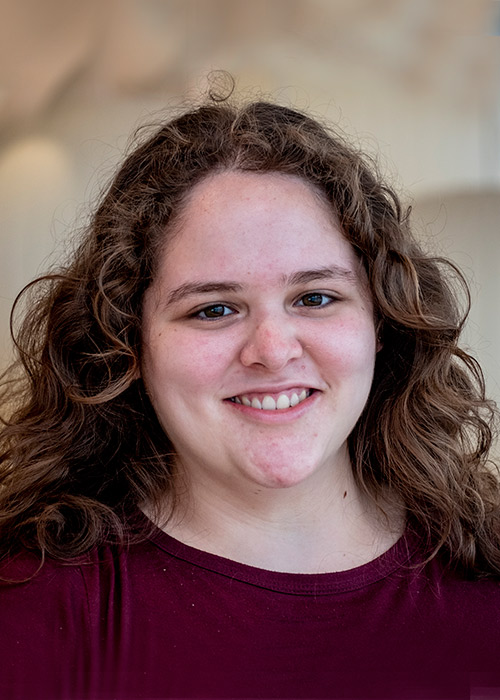
What brought you to UW?
I am a Swiss-Peruvian immigrant that grew up in Renton, Washington. Culture has been a major part of my life. I grew up celebrating Peruvian holidays and eating Swiss and Peruvian foods, however, growing up here in Washington introduced me to American culture, which makes me describe myself as a Third Culture Kid. I developed a strong interest in baking and strength training and use photography as a form of self-expression.
University of Washington provides accessibility to a broad range of opportunities which motivated me to choose UW. I learned about various opportunities for professional and educational experience that would be available to me from peers and professors who encouraged me and wanted to help me succeed. Receiving help with academic and professional success was also enticing. The Instructional Center was my second home for a large portion of my educational career at UW. All of these opportunities and resources motivated me in different ways to come to UW and stay for my studies.
What inspired or led you to the Food Systems, Nutrition, and Health Major?
During my senior year of high school, I was seeing a dietitian with the hopes of losing weight. While they helped me immensely with my personal journey, I also noticed how narrow the view of healthy eating was. I was not referred to recipes or foods that were culturally relevant, and advice I received did not provide a holistic approach to weight loss. When I was exploring my options for my major at UW, I came across the Food Systems major and saw how interdisciplinary it was. I liked that it brought in a variety of perspectives on how one’s personal, individual health can be so greatly impacted by food access, the foods we choose to eat, as well as how food is grown.
How has your educational background and experience prepared you for studying food systems?
I arrived at UW intending to prepare for nursing school. I had taken some of the prerequisite classes for the nursing major, before deciding to switch to the Food Systems, Nutrition, and Health major. Some of the classes, such as NURS 201 Growth and Development Through the Lifespan, gave me a baseline of reference which led to me analyzing the topic from a food systems lens. I began piecing together with what I was learning in the Food Systems classes, thinking of ways to address issues in the current U.S. food system.
How has studying Food Systems impacted your UW experience?
Through the major, I’ve learned about the inequities that exist in our food system and how I can take action to alleviate those problems. I have also seen how I can use my dollars to create a more environmentally friendly, healthy, and equitable food system, like buying local and organic as much as I can and investing in reusable bags for storing produce while I shop.
What are your future aspirations or goals?
I want to become a Pediatric Occupational Therapist or a nurse in Labor and Delivery, the NICU, or pediatrics. I want to be able to use my knowledge in Food Systems to adapt the care I provide. I will be applying for Occupational Therapy and nursing programs next year and see where life takes me.
Are you involved in any clubs, activities or organizations at UW?
I am the Secretary in Mixed Student Union. We have meetings every week about what it’s like to be Mixed in various areas of life!
What do you like to do for fun outside of class?
Outside of school, I can be found baking, strength training, doing photography, or going to a farmer’s market.
What is a fun or interesting fact about you?
During my senior year of high school, I was a finalist in the Washington State Photography Competition! While I did not end up placing, I was surprised that a picture I submitted made it that far.
What advice would you give prospective students considering a major in Food Systems, Nutrition, and Health?
Take advantage of what the major has to offer! There are a lot of upper division electives in a variety of fields, all which make the major much more enjoyable and flexible. Talk to your professors, as well! There are a lot of amazing professors that teach classes in the major and offer valuable insight into different aspects of our food system.